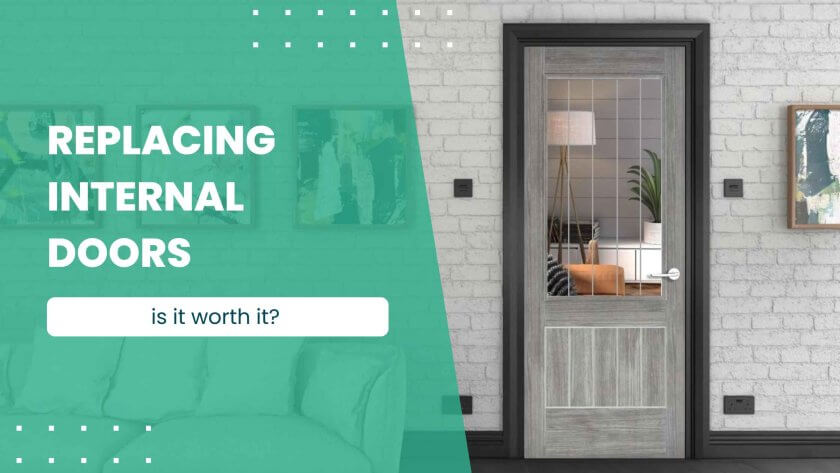When we think about home improvements, the first things that come to mind might be a kitchen revamp, a fresh coat of paint on the walls, or even replacing the carpets. But how often do we consider whether to replace an internal door? They’re part of the fabric of your home, used daily, and yet often overlooked when it comes to making changes. Today, we’re going to tackle the question: is it worth changing internal doors?
Spoiler alert: yes, it is. And here’s why.
The Hidden Impact of Internal Doors
Before diving into the practical benefits, let’s think about the role internal doors play in your home. They don’t just separate rooms; they’re a feature you interact with multiple times a day. A worn, creaky old door can be a daily irritation, while a new, solid door can create an immediate sense of quality and comfort. Like a solid handshake, a well-crafted door leaves a strong impression.
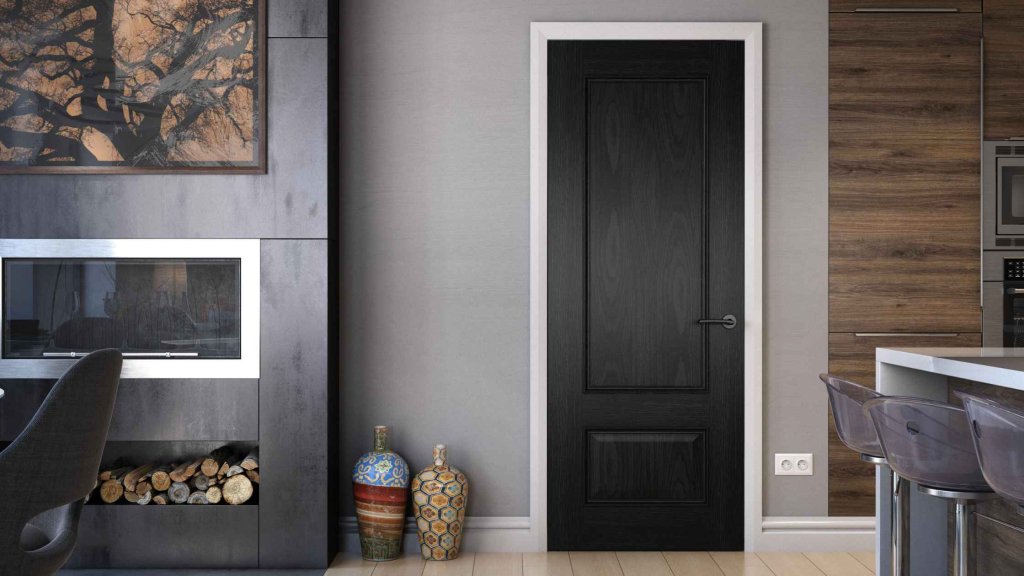
Imagine walking through your hallway: each internal door you open feels sturdy, closes smoothly, and looks fantastic. It’s like putting on a brand-new suit or pair of shoes. You might not think it makes much difference, but that small change can transform how you feel in your own home. That’s the potential of new internal doors—every interaction with them can be satisfying, and that feeling of care spreads through the whole space.
But let’s move beyond just the emotional impact and get into the nuts and bolts of it. Why, practically speaking, should you consider interior door replacement?
Does Replacing Interior Doors Add Value?
One of the biggest questions homeowners ask when considering any home improvement is whether it adds value to the property. The good news? Replacing internal doors does.
While it might not be as obvious as a kitchen renovation, interior doors are one of those details that people notice when they walk through a home. A buyer might not specifically comment on the doors, but they’ll certainly register whether the doors feel dated, flimsy, or even damaged. Conversely, a home with solid, well-finished doors gives a subtle but important signal that the property is well-maintained.
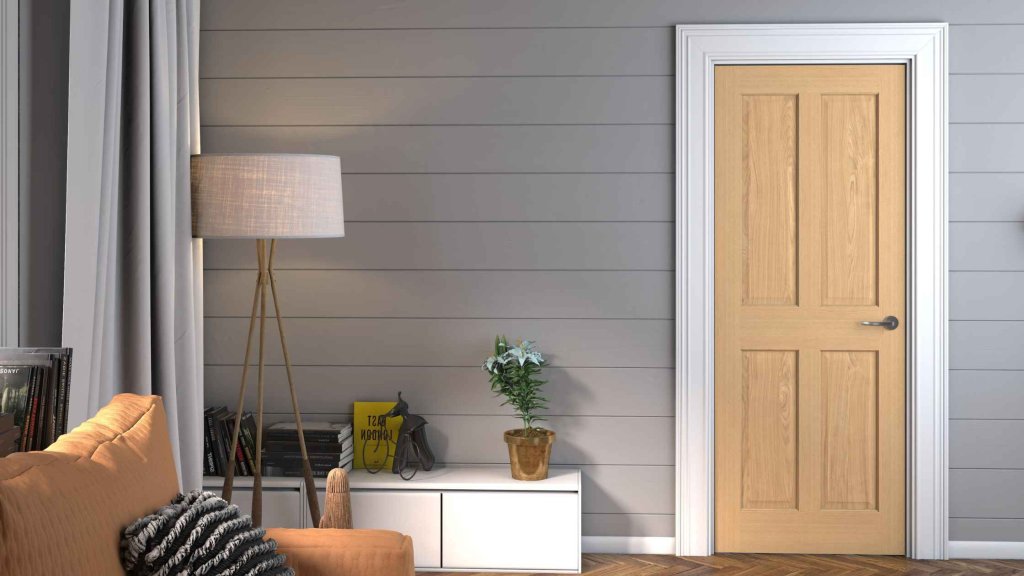
Imagine this scenario: you’re a potential buyer walking through a house. The paint is fresh, the floors are polished, but every time you open a door, it sticks or feels hollow. Now, flip that image—each door opens smoothly, feels solid in your hand, and looks like it belongs in a modern, well-cared-for home. It makes a difference, doesn’t it? That’s the kind of detail that can help sway a buyer’s decision.
It’s not just anecdotal either. High-quality, well-fitted doors are seen as a desirable feature, especially for potential buyers, who are often attracted to homes with updated interiors according to Checkatrade.
Are New Interior Doors a Good Investment?
If you’re thinking about whether it’s a good investment from a financial perspective, here’s where things get interesting. Changing your internal doors can give you a return on investment (ROI) in several ways.
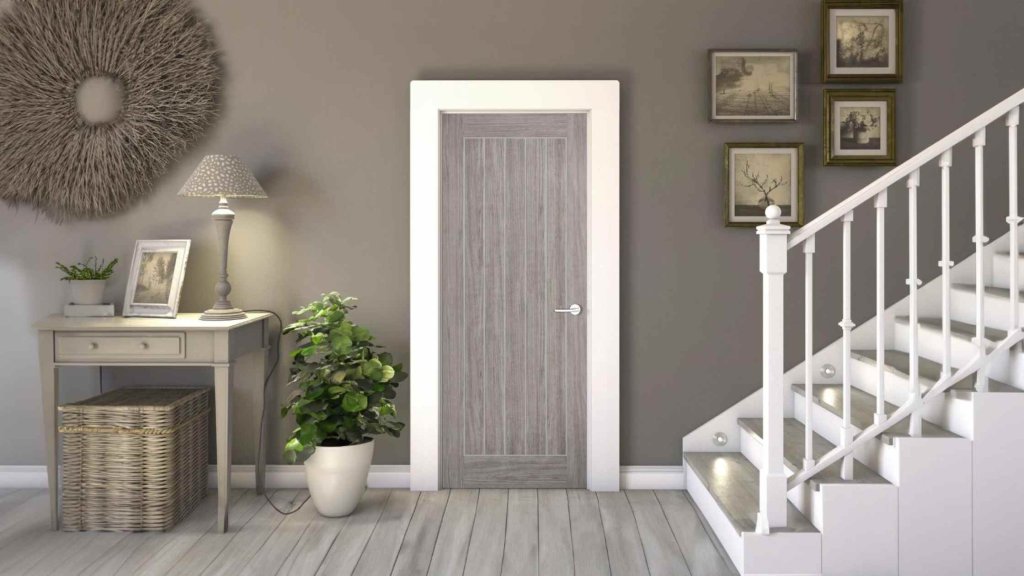
Firstly, the obvious one: as we’ve discussed, it adds resale value to your home. But even if you’re not planning to sell, there are other benefits.
Energy efficiency
Old, poorly fitted doors can let draughts creep through, especially in older homes. This can lead to higher heating bills, as your rooms lose heat. Replacing them with solid, well-fitting doors can help to keep rooms warmer and reduce energy costs. Read more on this from Green Living.
Soundproofing
A hollow, thin door offers little in the way of soundproofing. If you have a busy household, with kids running around or multiple people working from home, upgrading to solid core internal doors can make a world of difference. You’ll notice how much quieter and more private each room feels. Masonite explain more about the sound reducing effects of solid core doors, and you can even listen to the difference in comparison with hollow core doors.
Durability
If your doors are old, chances are they’ve taken a bit of a beating over the years. Replacing them with high-quality, durable doors means they’ll last for many more years to come. Instead of constantly repairing or fiddling with a door that’s come off its hinges or has swollen with moisture, new doors give you a low-maintenance solution.
You might choose to replace the existing door or include the door frame in your revamp too. Changing door frames is a bigger job but can be worth it if you’re taking on a renovation project.
How Often Should Internal Doors Be Replaced?
There’s no strict rule on how often you should replace interior doors. Unlike something like a boiler or a roof, they don’t come with a set lifespan. However, there are clear signs that it’s time to upgrade. If your doors are visibly damaged, warped, or difficult to open and close, that’s a major indicator that they need replacing. Likewise, if they’re hollow and have lost their sturdiness over time, you’ll want to consider an upgrade.
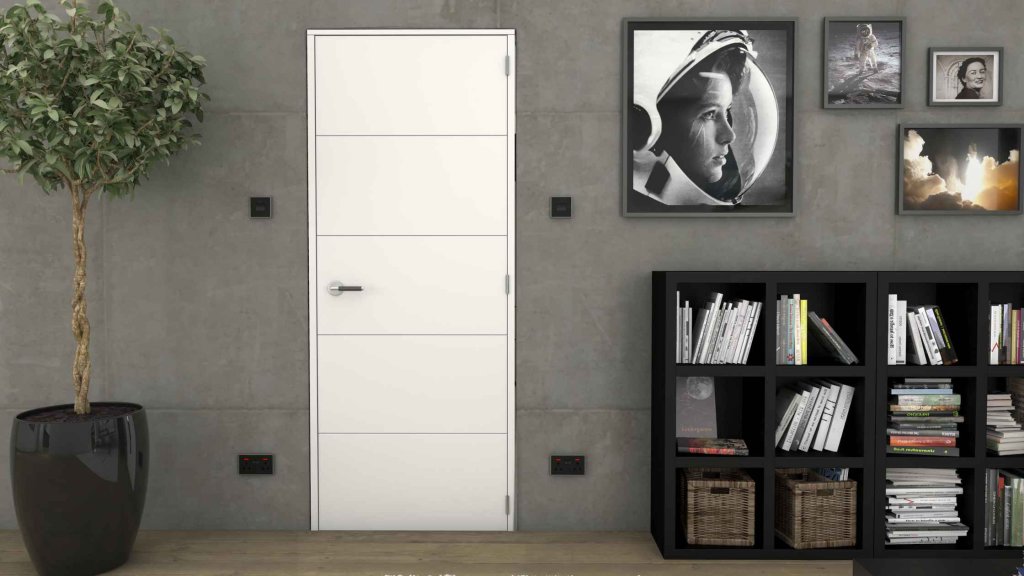
Many older homes in the UK still have the original doors, which might be showing their age by now. Styles change, and those yellowed, thin-panelled doors that were once the norm may now be dragging down the overall look of your home. Read more about replacing internal doors in our dedicated guide.
A good rule of thumb? If you’re planning to redecorate or renovate a room, consider replacing the interior door at the same time. It’s the perfect opportunity to give the space a complete refresh, and you’ll be surprised at how much a new door can contribute to that change.
Choosing the Right Doors for Your Home
So, you’ve decided it’s worth changing your internal doors. What next? Choosing the right doors for your home can be a bit overwhelming, with so many options on the market.
Material:
Solid wood doors are the gold standard—they’re durable, feel great, and offer excellent soundproofing. However, they’re also on the pricier side. Engineered solid core wood doors are a good alternative if you want something that still offers a solid feel without the cost of hardwood.
Style:
This is where personal taste comes in. Are you going for a modern, sleek look, or do you prefer something more traditional? The style of your doors should complement the rest of your interior. For example, in a period property, you might want to opt for panelled doors that match the character of the house. In a more contemporary setting, something minimalistic might work better.
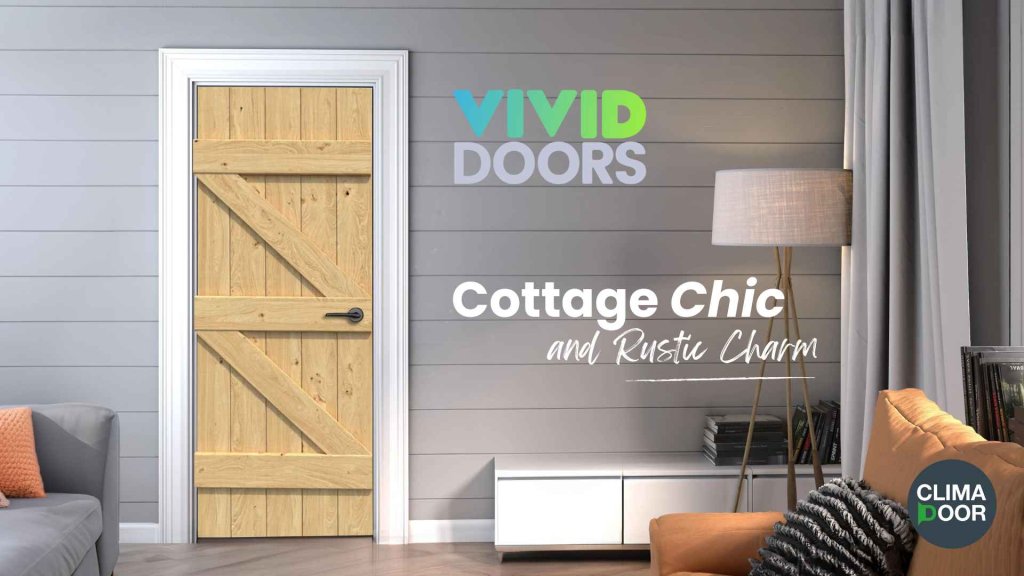
You might even choose to opt for interior glazed doors to increase the natural light flow in your home. This creates a lighter, brighter atmosphere and can boost your mood too.
Finish:
Unfinished doors allow you to paint or stain them to match your décor. Pre-finished doors, on the other hand, come ready to install with a professional finish. While unfinished doors give you more flexibility, pre-finished options save time and hassle.
Colour:
If you opt for a fully finished door, consider how their colour complements or contrasts with the rest of your décor. Doors can create balance, draw the eye or add a focal point if you make the right choice. If you replace internal doors with a different colour it can completely change the feel of a room.
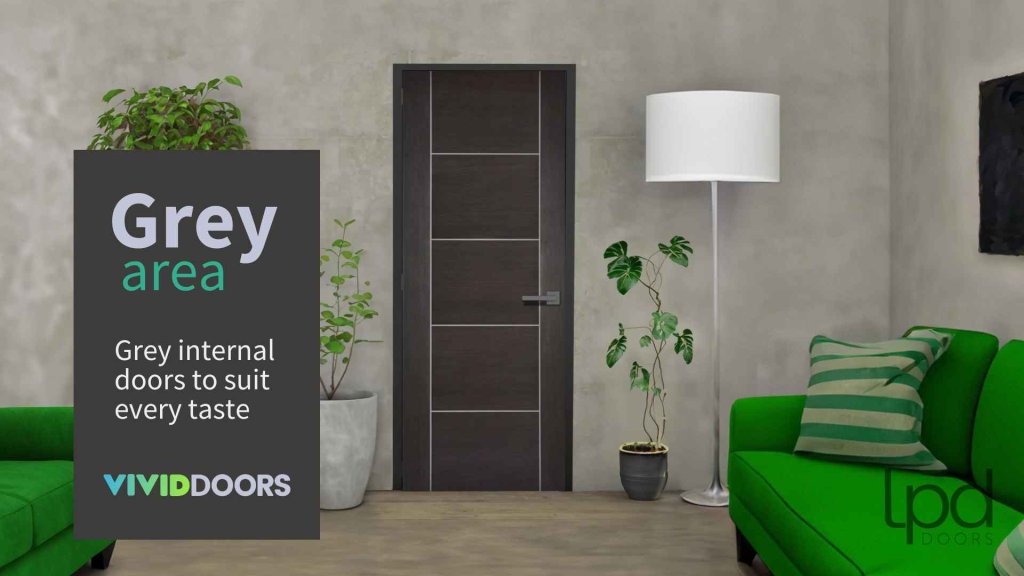
Door Furniture:
The final finish goes beyond the door leaf. When you’re replacing doors, consider the effect of the handles and other hardware. The colour, style and feel of the door furniture can have a big impact on the overall picture.
The Emotional Payoff: It’s More Than Just a Door
At the end of the day, replacing internal doors isn’t just about adding value to your home or cutting down on your energy bills. It’s about transforming the way your home feels. A new door can make a room feel fresh and modern; it can give you a sense of satisfaction each time you use it, and it can provide that subtle upgrade that takes your home from just “nice” to “really lovely.”
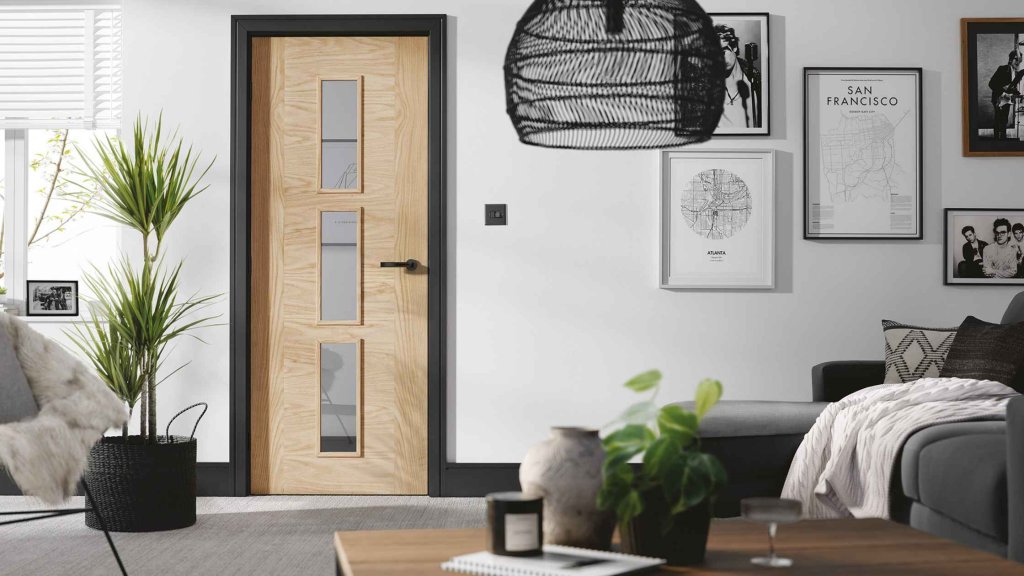
Much like replacing worn-out shoes with a pair that fits just right, changing your internal doors is about comfort and quality. It’s a simple upgrade that can make a profound difference. Every time you close a door and it quietly clicks into place, you’ll know it was worth it.
So, is it worth changing your internal doors? Absolutely. Whether you’re looking to increase your home’s value, make day-to-day life more comfortable, or simply breathe new life into your living space, the impact of new internal doors is both practical and emotional. It’s one of those rare home improvements that ticks all the boxes, from value to comfort, without requiring a major renovation.
Next time you walk through your home, take a closer look at those doors—you might be surprised at how much potential they have.


